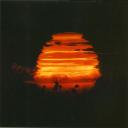Yahoo Answers is shutting down on May 4th, 2021 (Eastern Time) and beginning April 20th, 2021 (Eastern Time) the Yahoo Answers website will be in read-only mode. There will be no changes to other Yahoo properties or services, or your Yahoo account. You can find more information about the Yahoo Answers shutdown and how to download your data on this help page.
Trending News
What was the warmest period in the Earth's history?
Whooa GCNP, back the horses up!... you've assumed an argument that I wasn't making.
I am not, for one moment, attempting to make the point that "it's been warmer in the past, therefore current warming is natural"
You ask "What really is the point?". It is only this. I am seeking to correct a mischief that's being consistantly repeated here. It's been stated here many times over that "The ten warmest years in history are 2010, 2005, 2009, 2007, 2002, 1998, 2006, 2003, 2004 and 2001". This is incorrect and misleading. I am simply seeking to have this error redressed.
Or, perhaps I am completely mistaken.... Is 2010 the warmest year in the Earths history?
For Pegminer. If he said "the warmest years of the instrumental record are...". Then I wouldn't have an issue. But he does not. He makes a dramatic and sweeping statement which many visitors to this place will remember and parrot about. It is exactly this type of popular un-truth that leads people to belive that the demise of humanity is imminent.
Edit Bob326. Re "BUT, if your interested in correcting "mischief", you should look at Caliservative's nonsense about...". That's a fair criticism. 'Mischief' abounds on both sides of the discussion.
Edit Jeff M. Fascinating reading. Thank you.
Wrap up.
So, it seems we have certain knowledge that 2010, 2005... etc were not the warmest years in history. We have a linguistic convolution that might work, but only if you think that 'history' began in 1880, and we have someone who doesn't seem able to grasp the question.
Thanks for all your responses.
10 Answers
- Jeff MLv 79 years agoFavorite Answer
That would probably have been the Archaean era when ocean temperatures may have rose to between 55c and 85C though there is still a lot of uncertainty as the articles I've looked at have a wide range of temperatures.
http://gsabulletin.gsapubs.org/content/115/5/566.a...
http://www.nature.com/nature/journal/v462/n7270/fu...
http://www.nature.com/nature/journal/v464/n7291/fu...
Basically: I don't know as mostly what I look up deals with the medieval warm period. Talk about everyone having their mindset based on one thing eh? I'll try to search further and may get back to you if I find anything.
Correction - It was probably during the Hadean era where surface temps may have been a minimum of about 70C to 100C at the tail end of the era and as high as 2000C after the impact that would eventually form the moon.
- bob326Lv 59 years ago
"The ten warmest years in history are 2010, 2005, 2009, 2007, 2002, 1998, 2006, 2003, 2004 and 2001"
History:
1) a continuous, systematic narrative of past events as relating to a particular people, country, period, person, etc., usually written as a chronological account.
2) the record of past events and times, especially in connection with the human race.
The only timeframe in which we've had a coherent record of global temperatures is over the last ~150 years or so. So for the quantity of global temperatures, it is linguistically sound to state that 2010 is one of the warmest years in history (not sure if it's the warmest for every dataset). Whether it is misleading is another thing, and I tend to agree that it would be better to state that 2010 is one of the warmest years on "record", or better yet, in the "instrumental record".
BUT, if your interested in correcting "mischief", you should look at Caliservative's nonsense about correlations and "statistical analysis". In fact, Cali's source for these arguments, economist Alan Carlin's report, is FULL of "mischiefs".
- John WLv 79 years ago
For when life was on this planet, The Permian period where the high temperatures lead to low oxygen content and a cessation in ocean currents causing the ocean to go hypoxic so sea life died and anaerobic bacteria flourished producing hydrogen sulfide gases that killed the land creatures, both animal and plant. 95% of all life died during the Permian extinction 160 million years ago. The temperature was about 6 degrees warmer than it is now, well 5 degrees by now.
Source(s): http://www.wired.com/science/planetearth/news/2008... http://www.sciencedaily.com/releases/2005/02/05022... http://www.pbs.org/wgbh/nova/teachers/viewing/3318... - pegminerLv 79 years ago
Probably during the accretion phase of the planet. I don't think that's really relevant, though. What does seem to be important is that the warmest years of the instrumental record are now, and we're doing things to make it even warmer.
If you're really obsessed when the warmest period was, remember that most of the stuff inside the Earth was formed during a supernova, also, so it was WAY hotter then..and that's not even counting the primordial fireball of the big bang.
- How do you think about the answers? You can sign in to vote the answer.
- gcnp58Lv 79 years ago
Hasn't this argument been made before and discussed over and over and over? Why is it that even the most intelligent skeptics can't really come up with anything new? Yeah yeah, we get it, there have been times when the planet was hotter. And it has been explained to you and every other skeptic here why this doesn't really matter since you're comparing apples and oranges. What really is the point? I mean, are you really that clueless about how climate works that you are completely ignorant of the concept that in the distant past the planet was a lot warmer than it is now through a variety of mechanisms, none of which have been in play over the past 100 years? This sort of question doesn't really help your case, since the people who understand this realize you're not really arguing a position that can be defended rationally. All it's doing is getting the people who already think like you to chuckle and go "heh heh, good one, I like that one heh heh."
Why don't all you skeptics just admit that you don't want to reduce your energy consumption, and even if it could be demonstrated to you beyond a shadow of a doubt there is a problem, you wouldn't do anything about it. That would make you look at least intellectually honest and capable of introspection, rather than appearing as people who are willing to believe anything in order to rationalize their selfish behavior.
edit: I'm giving you cognitively dissonant explanation of the month award. First you say that I am incorrect in stating that your purpose in asking the question is to claim that because the planet was warming in the past, the current warming is nothing special (implying CO2 is not the cause), *then* you turn 180 degrees and make that exact same claim, which you told me I had assumed incorrectly. So, since you now acknowledge this was your purpose all along, even though you say it isn't, how precisely does the fact the planet has been warmer in the distant past disprove the hypothesis that anthropogenic CO2 is the primary driver of the warming observed over the last 50 years? Then, demonstrate how you are not guilty of precisely what I said above.
Really, you skeptics need to argue policy, not science. You don't get science. Really. That's not an insult. It's just a fact. Your (in a general sense) science questions are all semi-retarded and have been asked and addressed over and over and over. Solar, clouds, cosmic rays, good god, give it all a rest already. CO2 is the driver, it's changing climate, and it will be bad. Now, what should we do about it?
- AlexLv 79 years ago
Depending on whether or not the moon was a capture or produced as part of a collision the warmest period of Earth's history would be right after the accretion process finished and the Earth was fusing under the weight of Gravity or if the moon was produced by a collision with a mars-sized object, would have been after the Earth stabilized and reabsorbed the debris that was left over from the collision.
- SagebrushLv 79 years ago
The real answer is inconclusive at this time. But one thing is for certain it is not right now.
- Anonymous9 years ago
It isn't happening right now.









